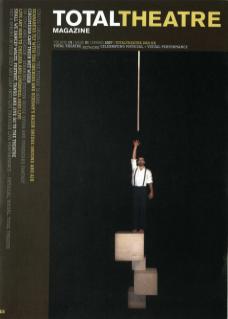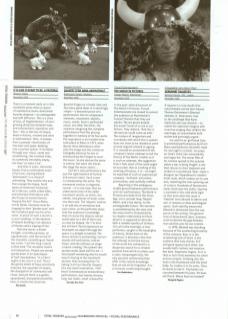If anyone is in any doubt that total theatre can be text-based, Thomas Ostermeier’s Blasted shatters it. Ostermeier rises to the challenge that Kane implicitly sets any director – to match her explosive imagery with inventive staging that renders the seemingly un-presentable both visible and piercingly urgent.
Ian and his ex-girlfriend Cate (committed performances by Ulrich Muhe and Katharina Shuttler) meet for one night in a hotel. Ian preys on Cate’s child-like vulnerability and rapes her. The moral filth of his actions spread to the outside where a war is being fought: a war that returns to their bedroom and renders it a wasteland. Über-sleek is designer Jan Pappelbaum’s modern hotel room, which rotates on its own axis, matching the lives spinning out of control. Hundreds of fluorescent tubes illuminate the shifts. Sterility is emitted in this cold white light so that even when the room is ‘blasted’ and reduced to debris and ash, it remains a clean and elegant space. Such sterility means this Blasted is distanced from the raw punch of the writing. The general tone of detachment does, however, serve to denote the gap between man and the acts he can commit.
In 1995, Blasted was shocking because of the unrelenting brutality of the violence. Now, it is the unrelenting lack of heart in the violence that truly shocks. Evil and good oppose each other, but usually both contain real emotion. Not here. Emptiness lingers. So it is that in Ian’s final moments his silent actions scream. Climbing into the hole in the floorboard with the dead baby, he cradles it in his arms. Then, he starts to eat it. Tiny bones are crunched between his jaws. He does not flinch. Where have we landed?

